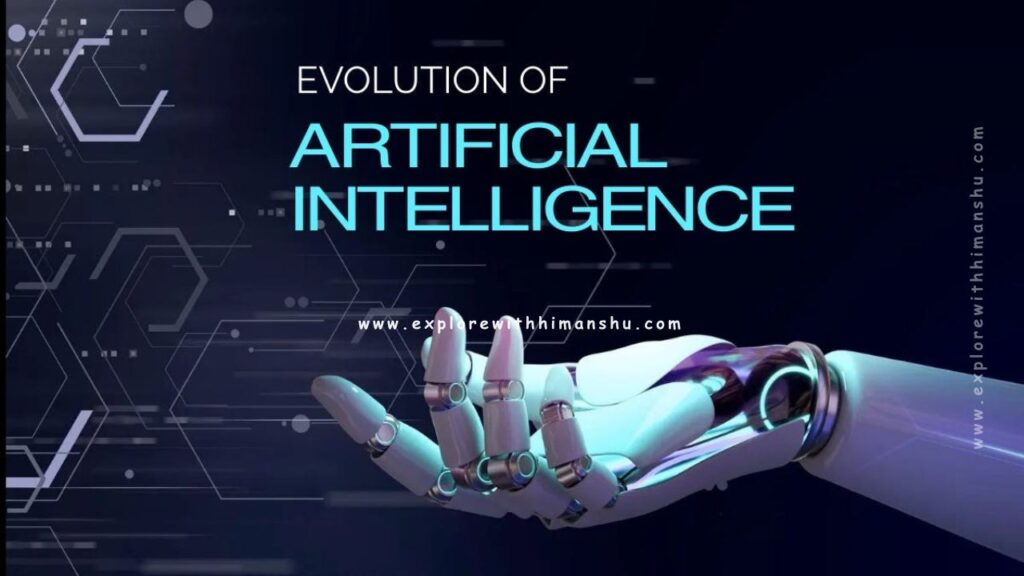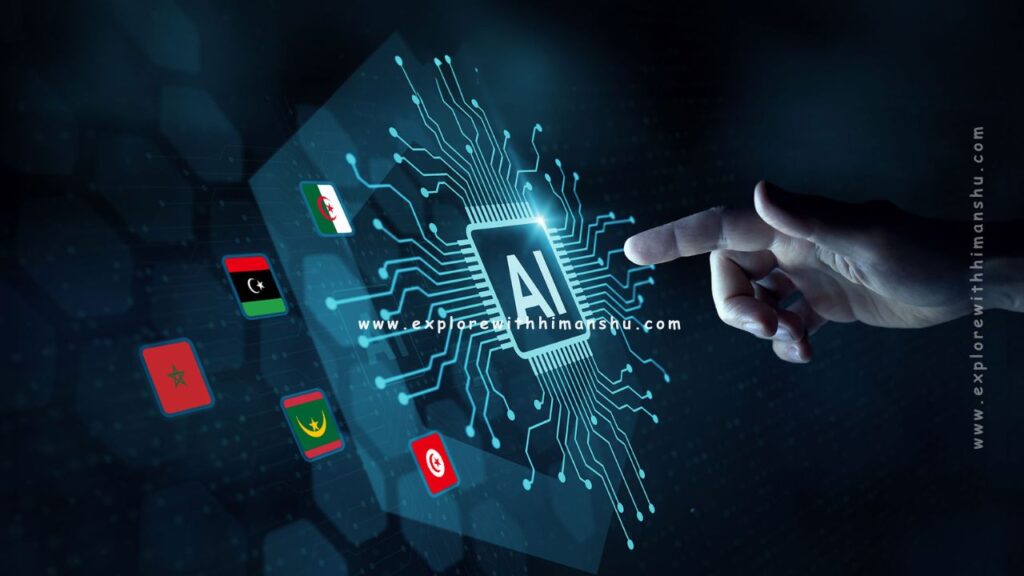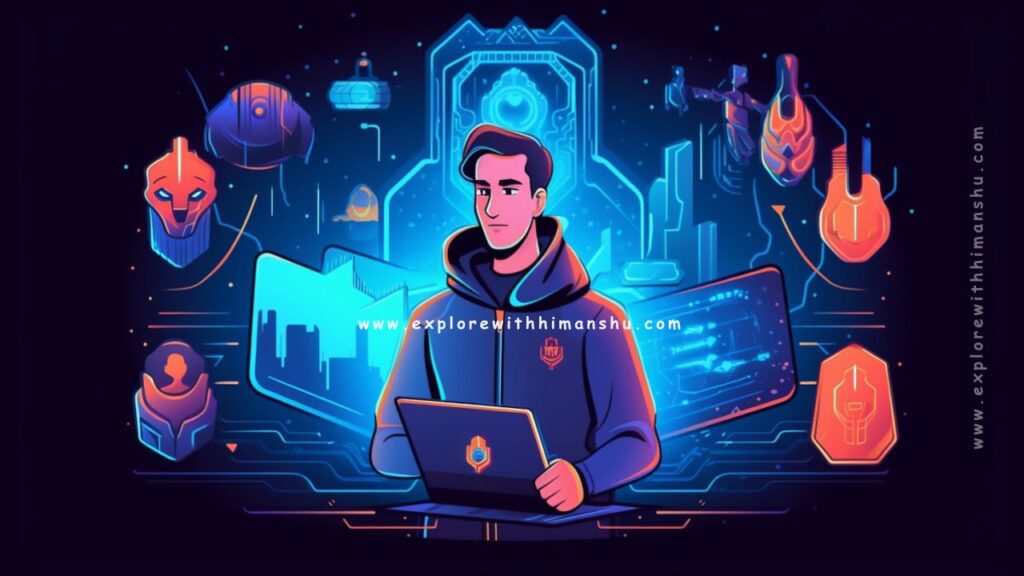Introduction :-
Artificial intelligence (AI) is not just a concept of the future, it is real and transforming the world as we know it. By 2025, AI is expected to be one of the major driving forces behind the transformation of various industries, streamlining business processes, and changing the way people interact with technology. AI Impact on Jobs From automating healthcare and finance to revolutionizing entertainment and transportation, AI is certainly changing the world for the better and modifying how the world operates.
The incorporation of AI into business and basic life functions has been steered by the quick evolution of machine learning, NLP, and robotics. Businesses increasingly utilize AI technology with the goal of improving customer service, automating mundane tasks, and making informed decisions based on data. The growth of AI brings along with it a set of opportunities and challenges that will define the future working environment, data privacy, and human innovation.
AI Impact on Jobs: Discover how artificial intelligence is reshaping jobs, skills, and industries by 2025. Stay ahead with emerging trends and opportunities.
The upcoming article is meant to show how different sectors use AI technology to their advantage, the pros and cons of using AI, and the ethical issues that come with the growth of AI technology. If you are a business owner, tech specialist, or are simply interested in emerging changes and innovations in AI, this guide will take you through all the details of how AI Impact on Jobs is changing out of the world for the better.

1. The Evolution of AI: From Concept to Reality
Artificial Intelligence has evolved significantly over the past few decades. From early rule-based systems to deep learning models, AI has come a long way. Key milestones in AI development include:
- 1950s-1960s: The concept of AI emerged with Alan Turing’s work and the development of early machine learning models.
- 1980s-1990s: The rise of expert systems and neural networks paved the way for more sophisticated AI applications.
- 2000s-2010s: The introduction of big data, improved computing power, and deep learning led to breakthroughs in AI capabilities.
- 2020s: AI has become mainstream, with applications in self-driving cars, virtual assistants, and predictive analytics.
In 2025, AI is expected to reach new heights with the integration of quantum computing, more powerful machine learning algorithms, and the widespread adoption of AI-driven automation.
AI Impact on Jobs: Future of Work and Career Changes by 2025
2. AI in Healthcare: Revolutionizing Medical Treatment
2.1 AI in Disease Diagnosis
AI-powered diagnostic tools have significantly improved early disease detection. Machine learning algorithms analyze medical images, detect anomalies, and assist doctors in diagnosing diseases such as cancer, cardiovascular disorders, and neurological conditions.
2.2 AI-Powered Drug Discovery
Pharmaceutical companies use AI to accelerate drug discovery, reducing the time and cost required to develop new medications. AI models analyze chemical structures and predict potential drug candidates with high accuracy.
2.3 Robotic Surgery and Personalized Medicine
AI-driven robotic surgery systems enhance precision and reduce surgical risks. Additionally, AI tailors treatments based on genetic profiles, leading to more effective and personalized medical interventions.

3. AI in Finance: Enhancing Security and Efficiency
3.1 AI-Driven Fraud Detection
Financial institutions leverage AI to detect fraudulent transactions and prevent cyber threats. AI algorithms analyze patterns and flag suspicious activities in real-time.
3.2 Algorithmic Trading
AI-powered trading bots execute trades based on market analysis, reducing human error and improving investment decisions.
3.3 AI in Customer Service and Credit Scoring
Banks use AI chatbots to provide personalized customer support. AI-driven credit scoring models assess borrowers’ creditworthiness more accurately than traditional methods.
4. AI in Transportation: The Rise of Autonomous Vehicles
4.1 Self-Driving Cars
Companies like Tesla and Waymo are advancing autonomous vehicle technology. AI-powered self-driving cars improve road safety and reduce traffic congestion.
4.2 AI in Traffic Management
AI analyzes traffic patterns and optimizes routes to minimize congestion and improve urban mobility.
4.3 AI in Logistics and Supply Chain Management
AI-driven predictive analytics optimize supply chains, ensuring faster deliveries and reduced operational costs.
5. AI in Education: Personalized Learning and Smart Classrooms
5.1 AI-Powered E-Learning Platforms
AI customizes learning experiences based on students’ strengths and weaknesses, improving educational outcomes.
5.2 Automated Grading and Virtual Tutors
AI automates grading processes and provides instant feedback to students. Virtual tutors offer personalized learning assistance.
5.3 AI in Language Processing and Translation
AI-powered tools like Chat GPT and Google Translate enhance language learning and cross-cultural communication.
6. AI in Entertainment: The Future of Content Creation
6.1 AI-Generated Art and Music
AI creates music, art, and videos, revolutionizing creative industries. Tools like DALL·E generate realistic images from text descriptions.
6.2 AI in Gaming and Virtual Reality
AI enhances gaming experiences with intelligent NPCs (non-playable characters) and immersive virtual environments.
6.3 AI in Film Production and Content Recommendation
Streaming platforms like Netflix use AI to recommend personalized content based on user preferences.

7. Ethical Considerations and Challenges of AI
7.1 Data Privacy and Security Concerns
AI relies on vast amounts of data, raising concerns about user privacy and data security.
7.2 Bias and Fairness in AI Algorithms
AI models can inherit biases from training data, leading to unfair or discriminatory outcomes.
7.3 AI and Job Displacement
Automation threatens certain job sectors, necessitating workforce reskilling and adaptation.
7.4 The Future of AI Governance
Governments and tech companies must collaborate to establish ethical AI policies and regulations.
Conclusion – AI Impact on Jobs.
There’s no denying that AI is continuously changing industries and transforming what humans are capable of accomplishing. In 2025 and further, AI will maintain its pace in innovation development, productivity growth, and quality of life improvements. However, achieving proper integration of AI in the society requires solving ethical dilemmas, data stringency, and workforce changes to facilitate smooth transitions.
While companies and citizens get used to AI powered changes, adopting learning and technology will become fundamentals for success. The effect of AI will be global and is bound to improve healthcare, finance, transportation, education, and even entertainment, marking one of the most extraordinary periods to watch the future unfold.
The AI Impact on Jobs in customer support is undeniable. While AI automation has replaced some roles, it has also created new opportunities, requiring professionals to adapt and upskill. The future lies in a balanced approach where AI complements human expertise rather than replacing it entirely.
Are you ready to embrace the AI revolution? Let us know your thoughts in the comments!


